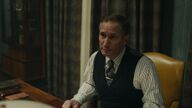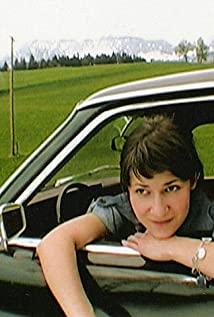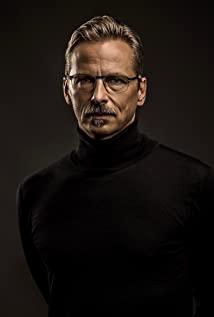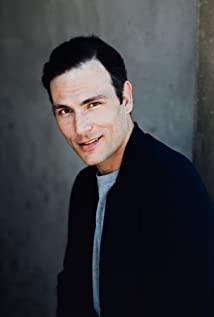The broken thoughts before the main text:
Before I suddenly realized that the Rath family and Benda (his wife) have a Catholic background (they are a metaphor for the old Centreists (predecessor of the CDU) and the Social Democrats who came to power after the war), these "positive" The characters "seem to have been predestined to be infallible, not to participate in the Holocaust, their traits have been excluded from these evils, so they can be the protagonists. Like Grian's nephew and Wiesel's younger brother, such pure people and eager seekers are easily swept away by the Nazis and become war criminals.
1: The special position of Catholics in German politics and culture
Too much historical research has been done on Catholics who opposed the rise to power, suffered Nazi persecution, and conspired against the Nazis during the war. The White Rose Group ("Hope and Resistance"), the Claysaw Group, Stauffenberg and the Assassination of Hitler, against the transport of Jews and euthanasia, sheltering the persecuted ("Seventeen Moments of Spring"), all behind the Catholic Church participate. When Protestants collectively moved towards the Nazis, the Catholic Church maintained a small amount of resistance, which was related to their status as second-class citizens in Germany from the beginning, and the Catholic Church was persecuted on a large scale as early as Bismarck's time. pass.
Due to the relative innocence of the Catholic forces and their role in resisting the Nazis during the war, they were also trusted by the Allies after the war. People like Adenauer have been reused. Christian Democracy, based on Catholic social teaching, also became the third way of the postwar Federal Republic of Germany as an alternative to National Socialism and Soviet-style programs, which also removed the uncertain, chaotic, and neutral elements of Weimar democracy. At the same time, it denied the possibility of monarchy, and established a social market economic system oriented by Christian values, which shows the influence of Catholic thought on contemporary Germany. By the way, the two major economic towns in West Germany: the Rhineland and Bavaria, are populated by Catholics.
The Grians, from Cologne. Cologne was already the territory of the archbishop-elector in the Middle Ages and played an important role in German politics. There is the famous Cologne Cathedral there, which is still one of the landmarks of Germany. After the Reformation, the Cologne region was the front line for repeated competition between Catholic and Protestant forces. Finally, after the Thirty Years War, the distribution formed after the Thirty Years' War was that today's North Rhine-Westphalia and the whole of Leip became Catholic positions. This was due to the mission of the Jesuits and the successful resistance of the Catholic army. During the Napoleonic period, the Bishopric of Cologne was secularized and handed over to Prussia. The relationship between the two was complicated by the special status Catholics had in Prussia: the Poles and the Rhineland were predominantly Catholic.
After the establishment of Little Germany, Bismarck regarded Catholicism as a thorn in Rome, an external force manipulating Germany's internal affairs (combined with the history of Pope Pius IX's strengthening of the Pope's power), and suppressed it in every possible way, including Catholicism in South Germany. Repression in Bavaria, while excluding the influence of Catholic Austria (the history of Ludwig II for reference). Also suppressed were the Second International and the Social Democratic Party. But it ended in failure. The Catholic Central Party and the Social Democratic Party, which represented the working class, were able to participate in parliament and participate in German politics as a political force second only to the Protestant Junkers and the Hanseatic urban commercial capitalists.
The First World War gave both of them an opportunity to turn themselves around, and like the Jews, they hoped to prove their loyalty to the state, not the enemy of the state (as they had long been suspected of doing). In the play, the Larter brothers all participated in the war, which is also the background of the whole story.
The first season also mentioned the connection between the Rath family and Adenauer from the very beginning. As a Catholic elite in the Rhine region, what is Adenauer's attitude towards Prussian Germany? Bismarck's "cultural struggle" against the Catholic Church gave Adenauer a very negative view of the Prussian state, which made him dislike the German system dominated by Prussia for life. Incorporated into Prussia (according to the Vienna Agreement of 1815).
During the war, Adenauer served as mayor of Cologne, and later as an imperial councillor. He rectified the chaos of the city with the ethics of the burghers and Catholics, and cooperated with the Social Democrats to provide a good logistics service for the German army on the western front, and also to ensure the food supply of the citizens, which made Cologne not like other cities in the war. Hunger and cold at the end.
The Rhineland region has been greatly influenced by France since modern times, and the French Revolution has had a profound impact on it. Cologne Catholics, who belong to the Latin Catholic cultural circle, are closer to France in terms of cultural psychology (for reference, Marx, who is a secularized Jew, feels too close to France). After the war, Adenauer suggested dismantling Prussia, making the Rhineland autonomous, and establishing an economic and trade alliance between the Rhineland and France. He maintained close relations with the British and French occupying forces, and was a person with a weaker nationalism and a more international vision. This is inseparable from the transnationality of the Catholic Church.
The alliance between the Centre Party and the Social Democratic Party was the backbone of democracy in the Weimar period, and if the two cooperated to support democracy, the parliament would ensure that there would be no compromise. The breakdown of cooperation means that democracy is in crisis, as was the case in the late twenties. This is also the background of the entire series - the crisis of the democratic order and the reconstruction of the new order.
Two: The Catholic color of the protagonist Grian Rattle
So what does the identity "Cologne Catholic" mean throughout the story? How do these background factors affect our protagonist, Grian Rattle? It should be noted that although this play has done a very modern and secular treatment of history, we should know that before the Nazis came to power, Germany was still a country with a very strong religious atmosphere, and 80 to 90 percent of its citizens belonged to Catholic Church or National Protestant Church. Until now, two-thirds of Germans still have a church affiliation. This is, of course, because firstly Germany has not undergone a complete revolution of secularization as in France, and secondly, industrialization has not changed the reality that most of Germany is an agricultural region. Third, the workers who enter the factory often retain their beliefs. This situation was gradually broken down after World War II. Before World War II, a German citizen's religious identity would have a huge impact on his job search, military service, and cultural upbringing. A North German Lutheran Protestant and a Bavarian Catholic will never be the same in national politics. This is because, after the Reformation, the Protestant church basically became a department controlled by the German princes, lost its independence, and after the Napoleonic Wars became a tool for the monarchy to manipulate the spiritual life of the people. Refer to Marx, Kerke The critical role of religion in the fields of politics, culture and education in German-speaking regions can be seen from the criticism of religion by Gower and Nietzsche. The liberal theology that prevailed in the Protestant church in the period before and after World War I was also directed towards modernization and the Prussian German nation-state. Protestant theologians were often the guests of honor at the Emperor and the University of Berlin, in contrast to Catholic clergy who were constantly ostracized and watched (because of their ties to the Holy See).
About Grian, we can divide it into several parts.
First of all, Grian, the name comes from the Roman Empire saint "Grian of Cologne", a soldier of the Roman Empire who was beheaded for his faith in Christ (compare the fate of the protagonist?), was killed in the play Referring to "like a medieval nobleman", the implication is that Grian is a person who is out of tune with the times. He, from the "outside province" of the Catholic region of Cologne, is particularly incompatible with the atmosphere of the entire "Babylonian Berlin". Not only because of the conflict between his cultural conservatism background roots and the frenzied, debauched twenties, but certainly also between him and the entire modern state of Prussian Germany and its purpose (the degenerate national romanticism of Protestantism) conflict. We can also see from the play that Grian has always been unable to accept many sins in Berlin: bottomless pornography, violence, drug use, secret politics, psychic rituals, and what he unconsciously maintains is the Catholicism he has been acquainted with since he was a child. The formal, human rhythm of conscience.
Secondly, the most criticized point of Grian's in the play is that he does not care about politics. This is actually not a common feature of German civil servants. It should be noted that the ethics of Prussian civil servants is still Protestant work ethics, and its orientation will also be to serve the state power. Grian doesn't even belong to this office bureaucratic class with "work virtues." He is not an officer trained in the military academy. In the Prussian state, civil servants and officers had social status, but ordinary soldiers did not. They were abandoned at the bottom after the war. So Gryan, like the drug-addicted veteran with a Polish name (and possibly a Catholic background), is a low-level existence. As mentioned above, the identity of Catholics in the Prussian country has always been suppressed or even suppressed, and they have never belonged to the mainstream circle that can issue orders and formulate ideologies. This can also explain why the Latts are surprisingly cold to politics. Indifferent people like Adenauer, who may not have strong emotions until death, are a kind of protection technique trained by Catholics under the repression of the Prussian state. For them, publicizing their individuality or participating in political torrents can often bring disaster. On the other hand, Catholics have always regarded the clergy as their authority, and have not cultivated any sense of political participation since childhood. This pre-modern sense has been retained until after World War II. For Catholics, their political life basically consists of voting for the Central Party and participating in church labor unions and youth organizations for women. The policies of the Centre Party are determined by priests and bishops and some professional Catholic politicians, who are not "mass parties" like the Social Democrats or the Nazis. Among Catholics, political participation has always been relatively passive. Good work is tacitly accepted as a way to gain mainstream social acceptance.
At the beginning of the play, Grian prays in the church, which already shows the author's emphasis on his identity as a believer. But after the ravages of war and mental illness, he almost lost his identity as a believer, and ignorance has become the dominant color in his life. By the way, he and his sister-in-law couldn't get married because, for Catholics, marriage is a sacrament, once valid for life. It is also impossible for a widow to remarry until her husband's death is confirmed. I believe it was quite common in Germany after the First World War that a large number of missing soldiers resulted in a large number of wives who had not been identified as widows and who were also difficult to remarry, which was raised as a social problem.
For Catholics, land, country, family, family, marriage, church, God, these values are far higher: work, country, society, nation, movies like "The Godfather" can give us the most intuitive depiction. For Grian, it was a huge challenge in itself to get away from the homeland of Cologne and come to Berlin, a secular but powerful metropolis that he was not familiar with. For many Catholics, coming to a foreign land lacking family and church soil is risky and often leads to a loss of identity. In Berlin at the time, Catholics were a subcultural group like exiled Belarus. Although they have been allowed to live here for hundreds of years. It is worth mentioning that in the Second Empire and the Prussian state before that, Protestantism was the state religion, and there was a close relationship between Protestantism and the imperial regime, which was regulated by law. After the establishment of the Weimar Republic, freedom of religion, separation of church and state, Berlin, which originally belonged to the Protestant country of Prussia, also began to allow the entry of Catholic elements. In 1922, the University of Berlin, which was originally the highest institution of the Prussian Protestant state, was allowed to set up the "Catholic World View" chair, and the Munich-born Catholic humanistic theologian Romano Guartini was in charge. Hannah Arendt, who was in her twenties at the time, became interested in theology after listening to his course, and used the title <
So, where is a little bit of belonging for Grian? The first is the Catholic Church in Berlin. There he found Benda playing the organ, but Benda was Jewish, not Catholic, and his wife was Catholic, so he also came to church in his spare time from political life. Grian and Benda symbolize the alliance between the Catholics of the Centre Party and the "Workers, Jews" camps of the Social Democrats. All three groups were characterized by their international and supranational character, which made them unacceptable to the Protestant, nationalist German ruling class. At the same time, in Catholic cultural upbringing, "moderateness", "moderation" and "unbiasedness" are consistent, which is also reflected in Grian's character. What he found in the Bendas was a reverence for life, a loyalty to the country rather than fanaticism, and a respect for different groups. These three points constitute the basis for the affinity between the two.
Grian met the Bendas after Mass. We learn that Benda was a secular Jew, but refused to be baptized Catholic like his wife, perhaps because of his status as a member of the Social Democrats (representing secular workers, the middle class, and Jews). From his remarks, we can see that in the context of the church, at Mass on Sunday, everyone is equal and there is no hierarchy. The small room on the right is the confession booth. Inside, believers and priests repent of their sins for forgiveness.
Mrs. Benda asked if Grian was influenced by Mass, and he replied shyly: It was beautiful. It can be seen from this that he has actually lost the original spiritual connection to religion, and can only perceive a little luxury of it from the outside. We can also learn from this that the Mass in the Rhineland is different from the Mass in Brandenburg, the latter being more restrained and the former more luxurious.
Note that in this scene, Grian is invited into the confession booth to make a confession (confession), before Benda's youngest daughter (from which we know that Benda's daughter was baptized Catholic with her mother) for a reason related to Sister-in-law's "extramarital affair" relationship. The priest told him that the Father's mercy will forgive all transgressions, and Grian replied nervously: I know. He cannot confess his actions before God because he has felt alienated from God and cannot be sure that his soul will be saved. Originally, he had no intention of opening his mouth and wanted to leave, but the priest told him, "My child, only this house (church) is always open to you (meaning that he will not have a space to talk to an absolute other in other places)" . He made it clear, and mentioned Arnold's disappearance and the fact that he had been in a relationship with Helga for eleven years (maybe more in fact). The priest told him that the ninth commandment "Thou shalt not commit adultery" is the core of the Christian's ethical life, a cross he has to bear, meaning that the church will still not recognize his affair with Helga, which is confirmed in Arnold's death Before, before they officially got married. Because of this ethical conflict, Grian was long estranged from the church, unable to accept the church inwardly or outwardly, which led him to turn to other means of redemption. For Catholics, the most important relationship is with God, and the second is with neighbors. The breakdown of multiple relationships leaves Grian in a state of complete isolation. At the end of the fourth episode of the first season, with Mahler's song <
Old Larter called Grian the "wrong son," which reminded me of the story of Cain and Abel, the first sons of human ancestors Adam and Eve. Cain (the second son) was jealous of Abel's (eldest son's) acceptance of the sacrifice in the Lord's (father's image), and accidentally killed Abel. Jehovah condemned him to be a lifeless wanderer, but at the same time protected him and forbade others to kill him. This event symbolizes the intergenerational transmission of the original sin of mankind. In the play, the original harmonious family order also collapsed, the death of the mother, the father's addiction to pornography, the rivalry between brothers, and the competition for Helga, which eventually led to a rift between Grian and Arnold, which prompted him to fight on the battlefield Abandoning his brother, indirectly causing his "death", is something he cannot be responsible for and continues to feel guilty about. After the original sin infiltrated the family, Grian's runaway and wandering became inevitable. This wandering process, however, was protected by God to induce his eventual repentance. Looking at this story in this way, it seems to be very theological.
Three: Old Rath and National Catholicism
Having said that, we must mention Grian's father, Old Larter. He is the head of the Cologne Police Department and a close collaborator of Mayor Adenauer. In him, there is embodied a program that German Catholics developed after developing their political consciousness: National Catholicism, an idea that has appeared since the shattering of the French Revolution, by the reactionary and romantic thinker de Maistre, And took root in France (French Action Party), Spain (Carlist and Franco regime), Italy (the Lateran Treaty was the result), Portugal (Salazar regime), Austria and Poland. Their characteristics are without exception: retaining or restoring the monarchy, maintaining the social structure since the Middle Ages, opposing parliamentary democracy, egalitarianism and other new trends that appeared after 1789, and maintaining the power of the church. This idea seemed natural to Latin Europe, but never came to fruition in Germany. In Germany, the Central Party has been on the defensive for a long time. One of its basic tasks is to fight for the rights and interests of Catholics, including the rights and interests of the Church. Its greatest achievement is the <
In the 1920s, this idea was fully embodied in the writings of Karl Schmidt, and later reflected in the political practice of the Center Party. It can be summed up in several points: the state is the embodiment of the divine natural order, the divine authority of the monarchy is changed to the divine authority of the state, and the country will be composed of a hierarchy: nobles, middle-class, workers and peasants, each performing their own duties and taking their place, a middle class The embodiment of the idea of the division of labor in the hierarchy of the century, the authority of the Catholic Church. This idea is based on reflection on the democratism and egalitarianism that prevailed after the French Revolution. This was most fully manifested in Germany in the 1920s, due to the great amount of chaos and bloodshed in Europe brought about by the ideas of democracy and equality. The German Catholic elites found a breach in the old order: the danger of the original Protestant Prussian state, the unreliability of Weimar democracy, the external threat of the Bolsheviks, gave them an opportunity. Eighteenth-century principles of human rights presuppose equality for all and the enjoyment of rights, which led to a war of all against all—as all demanded the realization of their rights, class struggle became inevitable. Catholic political thought, however, is based on the original sin of man, and believes that man should submit to the legitimate authority bestowed by God, rather than fight for his own selfish interests and ultimately destroy the entire national order. This kind of thinking is superior to Prussian Hegelian statism, because the latter only sees the modern state as an aspect of overcoming the selfishness of civil society, that is, the historical final link, but fails to see that the authority of the state is essential for overcoming human beings. The eternal and necessary meaning of original sin, which is based on the natural law created by God, is reflected in the political thought of Aquinas in the Middle Ages.
Returning to the plot, the practice of this idea is reflected in the cooperation between the Central Party and the military: this is the closest the Central Party has come to the center of power. When Bruning, Papen, and Schleicher were in power, their plan was to dissolve the parliament through the emergency power of the president, and at the same time welcome the German emperor back and restore the monarchy, but the political design after the restoration will no longer be the same as the first Like the two empires, but through the fascist system of Italy, a Catholic country in southern Europe: the monarchy has virtual power, the president/prime minister retains power, the parliament is accountable to him instead of the people, and the corporatism and hierarchy are strengthened. The practice of class cooperation would replace the practice of class struggle, a solution they believed would prevent Germany from falling into the chaos brought about by the Bolsheviks. We can note that there is a clear class difference between this elitist theory and Nazi ethno-populism, which is a mass movement. This kind of conservative thinking has won the approval of many elites such as aristocrats, capitalists, Junkers officers, and royalists. The Scarface who intended to run the secret police in season three was the practitioner who intended to build this new state system, and he was just using the Nazis against his enemies (the Social Democrats and Stresemann's People's Party) The coalition government), the two groups actually have a considerable conflict of interest.
Please note, however, that given the high level of confusion and complexity in German thought during the Weimar period, the TV series was only a highly condensed approach, combining cultural conservatives and nationalists, mystics, and national Catholics into one In fact, they also have conflicting interests.
Seeing that many drama critics follow political correctness against conservatism, on the contrary, I think the core of this drama is the real conservatism. You have to know that the "good" implied by the whole play is exactly the lost "warmth" that Grian has been looking forward to, a kind of "going home", which must refer to the existence of a "family". This value is not CDU, who is CDU! The conflict between him and the Conservatives is only a conflict of means.
Continue to mention the difference between Catholic conservatism and German conservatism: the former emphasizes family, small community, and traditional interpersonal relationships, while the latter emphasizes romanticism, pagan nation, blood and soil, and political determination, while many things in the latter are Grian couldn't accept it.
Four: Sin and Redemption
Not much has been written about Grian's father, but we can also see the turbulence of the entire political operation behind it. Go back to Grian. The meaning of the image "Babylon" in the Bible is self-evident. Berlin in the 1920s was indeed, in the eyes of Catholics, a wicked city that heralded the coming end, full of lust, sin and chaos. As a front-line worker in the police department, Grian was naturally caught up in it and couldn't extricate himself. He became addicted to drugs and was deeply troubled by mental illness (PTSD). At the same time, he had a relationship with his sister-in-law, lost his sense of direction in life, and was dominated by political forces without knowing it. He was excluded not only by his father but also by the country and society. In the marginalized group, he has almost become a character similar to Camel Xiangzi, but we can still find the inner goodness in his heart. Because of the above problems, Tongtong can come from another aspect, providing him with the opportunity to redeem himself and others. Man's sin, just happens to help man to grace. Grian is not as cold as others. He knows how people react when they are troubled by the aftermath of war. He helps the Polish veteran through it. He also strives to start a new family, raise his nephew, and at the same time. He also worked diligently at the police station, in the middle of different political maelstroms, but hardly committed a major crime in conscience and behavior, because the fear of killing the Armenian priest was a special case: from this incident we can see that the aftermath of the war It was the deepest wound left in Grian's soul that destroyed his connection with God. The symbolic event of "killing the clergyman" marked his entry into a state where he could commit any great sin without knowing it: becoming a bloodthirsty man like Kurt with a bloodthirsty face. This is the temptation that everyone in the police station may experience.
In the third season, we can see the author's tribute to the "Seven Deadly Sins", the idea of "Seven Deadly Sins" comes from Dante's "Divine Comedy". The police appraisal section chief who committed the crime of arrogance and jealousy used his identity to manipulate many murder cases. This character fully reflects the rebelliousness of the descendants of stealing the forbidden fruit: he has mastered technology and thought he could manipulate life, but he Into a world entangled by original sin, unable to extricate himself, and finally infected with narcissistic performative personality and towards destruction. The theme of "crime" runs through the whole play. Different people kill, enslave, defraud, plunder, and conspiracy for different reasons and motives. These plots have long been common. The old Larter who made porn out of lust, the young Nazi who tricked the maid into blowing up Benda and his daughter for political purposes, and the Kurt gang who organized a coup out of anger and did anything to do it My son, the melancholy Grian, the jealous chief of the appraisal department, the vain and arrogant statesman... In such a situation, how difficult is it to maintain the kindness of people? But even so, Grian still got God's help: he escaped from the predicament many times, rescued Charlotte and the Prime Minister, kicked Scarface from the secret police department, prevented a colleague from hanging after the stock market crash, and so on, Without good motives, he could not have done any of these things. In other words, if he had a trace of evil, he would immediately lose the protection of divine grace and become one of those people.
However, we still found that Grian gradually fell into a state of beleaguered and helpless. Benda, his political patron, was killed, his sister-in-law was tempted to leave him by a financier, and his nephew no longer joined the Catholic youth organization, but instead found identification with the Nazis (from this, you can also see the difference between the two, the former is stronger The latter emphasizes "brotherly love". Sophie Sauer, who is also a Christian, and later leader of the White Rose Movement, was an active community member before the war. Many young people were in the Nazi organization, while A non-traditional society that found its place. This also provided a strong spiritual foundation for Germany's later war capabilities, far superior to World War I.), the young photographer was killed by Kurt, and Charlotte suffered from time to time Various crises, my brother is engaged in some mysterious industries, and he is not willing to go home. The small family he dreamed of building at the beginning no longer exists, and it is impossible for him to find a safe shelter in the short term. The police station may be a good place. First of all, at the end of the third season, the Scarface who opposed him was driven away. "Living Buddha" Genart is a very reasonable person. At the same time, he has several good colleagues. , which at least makes him no longer threatened by his neighbors in the work environment.
A memorial service for the families of the fallen soldiers in the church. We know that these widowed women's families are sponsored by the Nissen military-industrial group, and the church also provides support for these people. In this scene, based on the tragic experience of her husband's death, Helga realized that it was these military entrepreneurs who "sacrificed for the country" were the real butchers, and she condemned Nissen. In a Protestant family, "nation" is still an important value, but for Catholics the integrity and harmony of the family comes first, which also means anti-war (or at least against injustice) ) as a necessary value.
Five: A little prediction, conclusion
But we also know that Germany is in the most chaotic state after the economic crisis, and few people can escape. However, from the perspective of hindsight, the passivity of Catholics gives them a relatively safe asylum. For example, Adenauer has been out of work after the Nazis came to power and was removed from office. He had ties to the anti-Hitler group and was investigated for this, but he was not sentenced. Many Catholics were persecuted during the Nazis for their outspoken opposition to racism, anti-Semitism, anti-religious policies, state worship, euthanasia, and general warfare, and were put into concentration camps and killed, but at the same time they maintained a degree of cooperation: A large number of Catholics participated in World War II, and some of them formed the anti-Hitler officer corps, and were always ready to assassinate the dictator and take over power. Such a force can be called "shadow Germany".
I don't know if there will be Catholic clerics in the show (they are in the original) in season 4 or later, and if they will give Grian asylum or help, because due to Helga's departure, A No's death was officially confirmed, and the biggest external barrier to reconnection between Grian and the Church disappeared. The real barrier remained internal. Having said that, for a Catholic, turning to a psychiatrist to solve PTSD should be considered an off course: Grian's felony for being weak: because of his covetousness for Helga, for Arnold's love for his father The jealousy and the enmity that followed made him abandon Arnold on the front line, which led to his "death" and the denial of patriarchy he encountered. These two points cannot be solved simply through "psychotherapy". of. The only one who can forgive man's sins is the transcendent and absolute God, who can give man the deepest sense of value is the love that comes from him, by which man gains life and the ability to love his neighbor. The sense of worth cannot be obtained by the limited self, nor by psychiatrists, and certainly not by political movements. Grian is well aware of the unreliability of these two, so he has also maintained the law of conscience above himself in various emergency situations: it can be seen from his plan to oppose Kurt's coup d'état. The law of conscience is the bottom line to keep a person from falling into the "banal evil" like Eichmann, and it will also become the proof that a person is still rescued in Sodom.
Finally, a quote from the author of the original book (who himself is from the Rhineland Catholic environment): to prove that my above comment is indeed justified:
Volker Kutscher hat genau recherchiert. Die historischen Details in seinen Krimis stimmen. So kommen auch reale Personen der Zeitgeschichte vor. Zum Beispiel der berühmte katholische Priester Bernhard Lichtenberg, dem Kutscher in seinem Kriminalroman ein Denkmal setzt. Pfarrer Lichtenberg versteckt von den Nazis verfolgte auch Kommunisten. Vom Mut und Geschick des Geistlichen erzählt Kutscher. Seinem Kommissar Gereon Rath kommt hier entgegen, dass er katholisch ist, denn er kommt aus Köln. "Er ist kein frommer Kirchgänger aber doch in katholischer Wolle gewaschen", beschreibt der Autor . "Auch ist er in Berlin durch seinen katholischen Namen ´Gereon´ stigmatisiert und wird immer als fremd erkannt." Das katholische Milieu in Berlin sei eher resistent gegen die Nazis gewesen, sagt der Autor."Obwohl Gereon Rath nicht poliitisch ist, läßt er sich durch seine katholische Identität von den Nazis nicht so einfach vereinnahmen."
"Volker Kutscher did precise research. The historical details in his crime novels are correct. Real people from contemporary history also appear. For example, the famous Catholic priest Bernhard Lichtenberg, whom Kutscher honors in his crime novels Father Lichtenberg hid resistance fighters persecuted by the Nazis - including communists. Kutscher recounts the cleric's courage and skill. His agent Gereon is helped here because he is Catholic , because he was from Cologne. "He was not a devout, but he was washed with Catholic wool," the author describes his hero. "He was also stigmatized in Berlin by his Catholic name 'Gereon' is always regarded as a stranger. "The Catholic environment in Berlin was quite hostile to the Nazis," the author said. "Although Gereon Rath did not understand politics, he did not allow himself to be easily bought by the Nazis because of his Catholic identity."
View more about Babylon Berlin reviews











